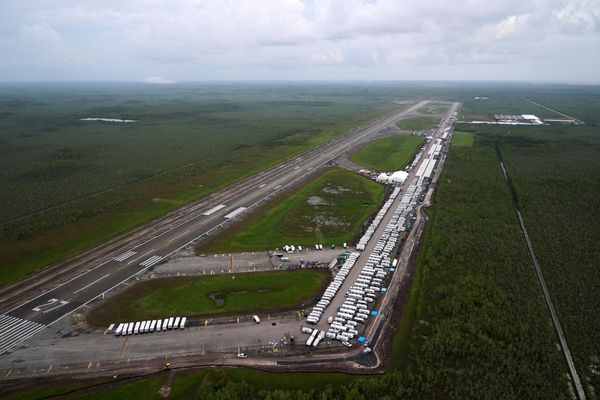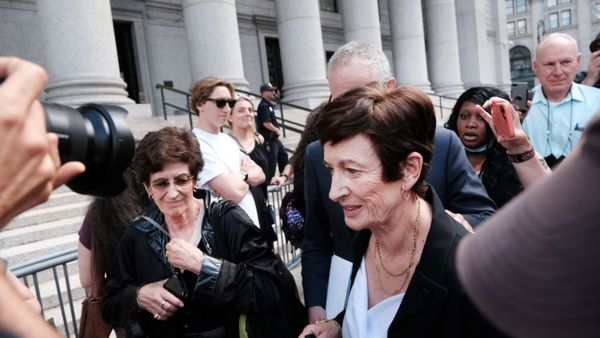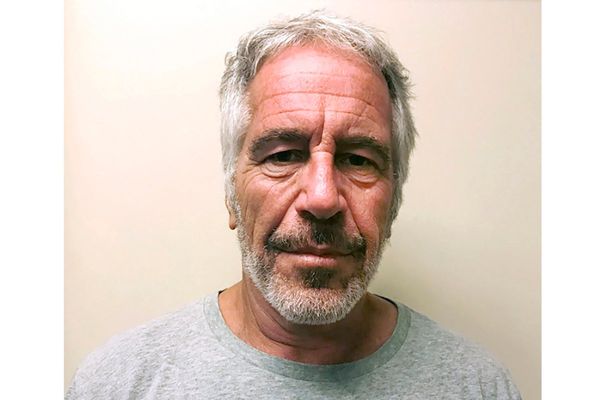
In June, Erika Crenshaw and Patricia Torres opened El Sereno GreenGrocer. The journey began with a simple comment from a neighbor, Torres said. “We need a grocery store.” Crenshaw and Torres knew this because they had to drive to other supermarkets in other neighborhoods for fresh fruits and vegetables.
But this is also a Los Angeles neighborhood where many do not have cars and, like people everywhere, they can not walk long distances or take a bus with multiple bags of groceries. A recent USC study found El Sereno is a community where many households have no supermarkets or grocery stores within a 15 minute walk. So Crenshaw and Torres decided they would start a healthy food market that their neighbors could easily get to, with produce they could afford.

Just as it is hard for their neighbors to get to a grocery store, Crenshaw and Torres found it is hard to open one in the neighborhood. First, they could not get a bank loan. Banks wanted evidence that they had run a profitable market, Crenshaw said. Torres had worked as a consultant for nonprofits. Crenshaw installed solar panels at Tesla; before that, she was a teacher.
“Banks don’t hand money over to people who don’t have money,” Crenshaw said.
So the couple, along with Torres’ mother, took out a personal loan for $250,000. Once they signed the lease, Crenshaw, using what Torres calls her “contagious enthusiasm,” enlisted help remodeling the space — pulling down plaster walls, scraping the floor, installing electrical outlets and transforming a 42-year-old beauty salon into the El Sereno GreenGrocer. Torres sought grants to support their business, landing an L.A. County grant for $200,000 administered by Community Services Unlimited (CSU), which goes to pay staff.

“We learned many people have capital when they start,” Torres said. “We have the capital of relationships.”
Torres notes that the Los Angeles Food Policy Council brought invaluable support by walking them through the process to accept Electronic Benefit Transfer cards (for public food assistance) in the store.
The goal was to offer EBT on day one, Torres said. EBT was important because many in the neighborhood relied on their cards to pay for their groceries.
But the EBT application and installation process for stores is strict and complicated. It took them six months, until December, to be able to accept EBT.
They expect to be profitable in their first year, Torres said.

El Sereno GreenGrocer’s mission is to feature culturally relevant food that celebrates and supports local, urban Black Indigenous people of color-run farms and entrepreneurs, Torres said. They do so in a brightly lit, homey space that is a welcome contrast to drab mini-markets.
Upon entering through the bright tangerine door frame, there are packets of dry seasoning from Todo Verde, a vegan Mexican food business, near Dan Dan sauce from Chinese Laundry Kitchen, both locally owned. There are dark amber jars of honey from Don Victor, a 99-year-old backyard beekeeper. The rear refrigerator features four ounce bags of freshly picked arugula from Alma Backyard Farms in Compton and half-pound bags of lettuce from Avenue 33 Farm nearby in Lincoln Heights.
The process of opening their neighborhood market left Crenshaw wondering how others do it. The permitting process with local governments was both frustrating and confusing, she notes. There is more she and Torres hope to do, like offer customers additional fruit and vegetables through Market Match, a federally and state-funded food program. The Los Angeles Food Policy Council approached Crenshaw and Torres to join the Healthy Neighborhood Market Network.
But the next step, she said, is to gain access to wholesale vegetable and fruit vendors. El Sereno GreenGrocer can only “move at the pace of capacity,” Crenshow explained. They could have benefited from the guidance and knowledge of another small market owner familiar with the process of opening a market.

“There is nobody out there that supports small businesses that are women owned, queer owned and BIPOC [Black Indigenous People of Color] owned,” Crenshaw said.
That was true for Crenshaw and Torres. But the next market that tries to open in a neighborhood like El Sereno now has an example to follow: the GreenGrocer.







